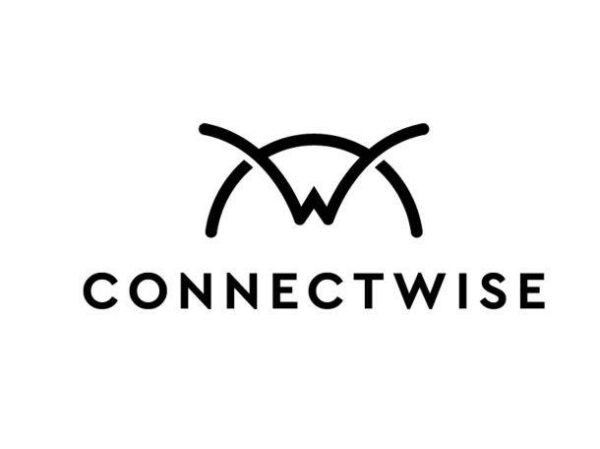A little knowledge in seven key areas can go a long way.
A new vaccine may be zooming around in trucks and planes but in everyday terms, life is still going to be a bit dicey for a few months. And we have no idea of what the “new normal” will be, so what’s a copier-printer dealer to do?
One thing suggested is “expand your offerings.” Nice idea, but what makes sense for your dealership? It comes down to what can be easily added and what requires substantial change. Some options make a lot of sense and can be relatively easily implemented, while others require new skills, strategic thinking, and even rebranding your business. We’ll get into the low hanging fruit in another column, but this time, we’ll take a high-level look at one big dog—managed IT—that can truly transform your business and raise the bar for what you bring to market, which is why some rebranding may be required.
Managed IT sounds a bit compelling in general terms and when you casually toss the phrase out over drinks at the club, no one is going to ask you what it means. This is good because managing information technology is a tad more complicated than you may think.
Seven Areas
In broad strokes, managed IT breaks into approximately seven areas. While customer needs may dictate specializing in a couple of them, you should be somewhat knowledgeable in all. These areas, in no particular order of priority, include:
- Choosing providers and partners.
- Network creation and connectivity.
- Printer and copier connectivity with network and local users.
- Connectivity for remote workers using devices on unsecure networks.
- Internal and external security.
- Selling and supporting managed IT services.
- Document management (a complex add-on that not all customers need).
Lack of expertise in any of these areas does not mean you should pass on the opportunity. You’re smart and can learn what you need to know. Plus, other people will be doing the hands-on work, so it’s more important that you can initiate a conversation about IT than provide detailed technical answers. What is important is recognizing that managed IT can transform your business while providing a new, secure, and growing revenue stream that increases your business’s value, offers employees growth, and can give you a significant advantage over competitors while fostering long-term relationships. It is not, however, a step to be taken lightly.
I reached out to Jeff Elkin, president of Advanced Business Systems in Cockeysville, Maryland, and an expert in providing managed IT services. He filled me in on some of the broad strokes.
“The first decision a dealer should make is whether to provide managed IT as a core part of their business or to partner with a strong IT provider in their market,” said Elkin. The partnering (or acquisition) option is important, and we’ll get back to that in a minute.
Less forgiving
Before we get there, realize that although managed IT seems like a natural extension of selling printers and copiers that hang on a customer’s network, managing a customer’s IT operations is very different than copying and printing, and as a business, it is much less forgiving. A copier or a printer going down for a few hours is merely annoying. But if a customer’s network goes down, an entire company can come to a screeching halt. Moments later, your phone starts ringing. Your IT team must be available no matter what their plans for the afternoon or evening may be. This seems bad in the short term, but when your team can solve the problem, it pays dividends as your company becomes recognized as a reliable provider of IT services.
Commitment Required
Listen to Elkin: “If a dealer does not see managed IT as a core part of their strategy for years to come and is not committed to investing significantly for years, they should think twice before taking it on internally. However, if they are committed to making the investment of cash and company resources, the decision is whether to build it from the ground up or buy it.”
Building from the ground up means identifying, hiring, and training people who can hit the ground running and help create the managed IT operation of your organization. Look for people who have run or been part of a managed IT group with needs similar to yours. These people will be representing your company and you don’t want amateurs calling on your customers—this is definitely not a learn-on-the-job role. Elkin’s company, which already had some expertise in-house, chose to build from the ground up because doing so aligned with the company’s culture, and provided new career paths for many employees. Now several years in, it was the right choice for his company. When considering what strategy is right for your dealership, talk with your management team and key technical people to consider all options.
Partner power
Next is the partnering component. Partnering or acquiring is a decision as critical as the one to add managed IT to your offerings. Partnering with another firm or acquiring one can make sense because most dealers lack the expertise to take on managed IT.
When you go looking for a company that would be a good fit, the first thing to keep in mind is to not cheap out. “Dealers who are thinking of buying an IT company should find one that is already profitable rather than a fixer-upper,” cautioned Elkin. Most markets have many that fall into fixer-upper category, making valuations for the good ones quite high. “It is hard,” continued Elkin, “to fix a business when you don’t have expertise in its industry.”
Always start with the basics, even when considering a company with an established track record. Obviously, any potential partner you consider should be financially stable, but technical skills, experience and responsiveness are paramount. Find out what this potential partner can and cannot do. Get a sense of what it considers a small or large customer. For instance, be sure the firm can support companies that are at least as large as your biggest customer. If you support 126 copiers, printers, and scanners on five floors of a bank, an IT company that thinks of a big install as the 27 copiers and PCs in a law firm might not be a great fit. If your company will be the first call a customer makes when their network goes down, you want to be sure your IT team is up to the job.
When your managed IT team proves its worth by supporting your customers around the clock, your company is on its way from being a copier-printer dealer to a technology-services provider. On the surface, that’s more for your sales guys to talk about. More importantly, your company shifts from selling a commodity to selling a range of value-added services that help you build long-term business relationships.
Access Related Content
Visit the www.thecannatareport.com. To become a subscriber, visit www.thecannatareport.com/register or contact cjcannata@cannatareport.com directly. Bulk subscription rates are also available.



